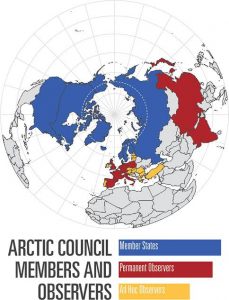7667766266
enquiry@shankarias.in
Why in news?
India was re-elected as an Observer to the Arctic Council in its recent ministerial meeting at Rovaniemi, Finland.
What is the Arctic Council?

What are the objectives?
Who are the other participants?
What is India’s role in the Arctic?
Why is it significant to India?
Source: Indian Express